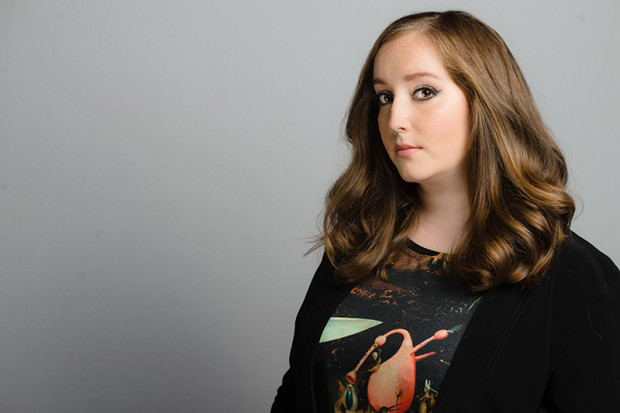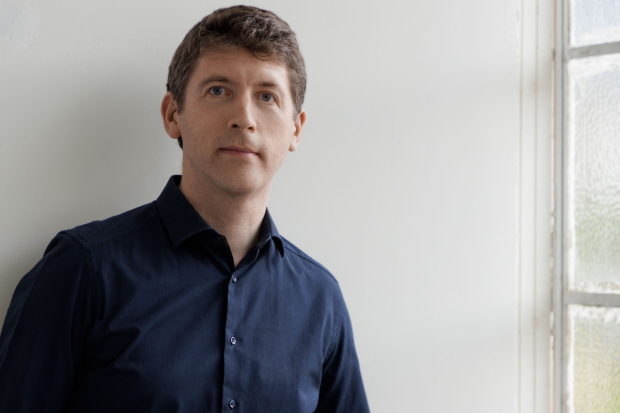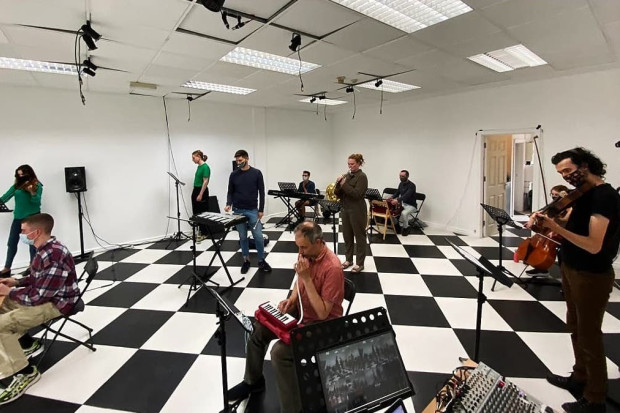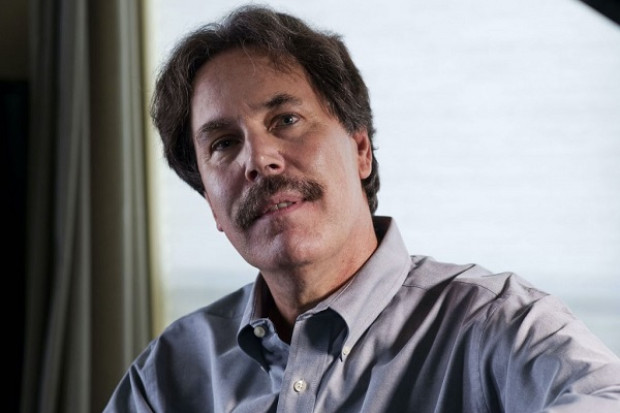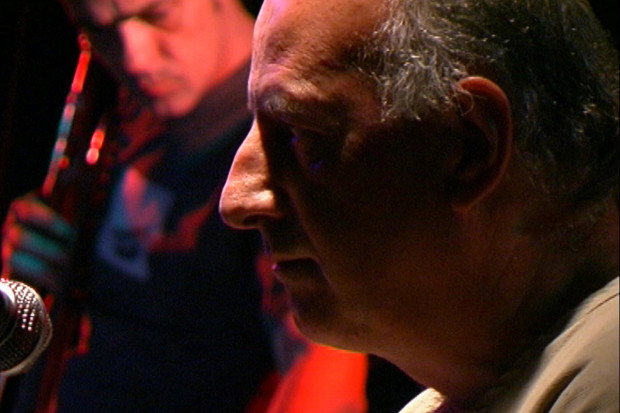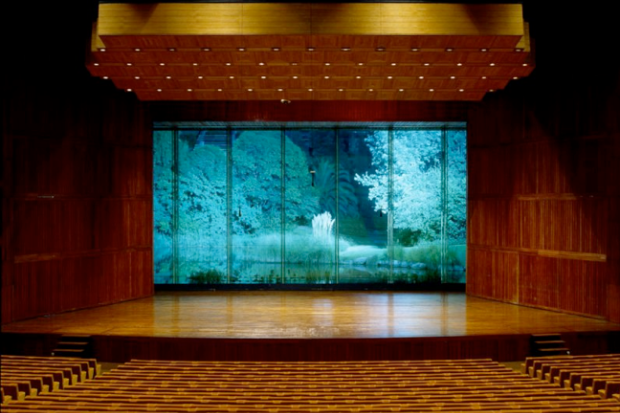RTÉ Living Music Festival: A Personal View
A great composer, the late Luciano Berio, was the focus of RTÉ’s first Living Music Festival (October 2002). The second Festival (February 2004) concentrates on a great nation: France.
Our notions of ‘classical music’ tend to evoke a central Austro-German river, to which other musical streams are tributaries. Why this should be the case is matter for a separate essay, but may boil down to the primacy in our civilisation of Teutonic notions of development, dialectic, and indeed the way we define ‘greatness’ itself.
However, if chronological primacy were the main factor in judging these matters, we would see France as the true mainspring of Western classical music with Austro-Germany as a belated and sporadic confluent. To the French we owe the birth of polyphony in the twelfth century and that of electronic music in the twentieth, as well as an extraordinary continuity of named composers over a period of some eight centuries, from Pérotin (c. 1160-1240) to Dusapin (b. 1955).
Celebrating France
As artistic director of the LMF I am in the enviable if dangerous position of being able to push my personal inclinations, while claiming a broader relevance for my selections. My choice of Berio in 2002 was based on the fact that he was – and remains – one of my favourite composers; he was also the most conspicuous modern master whose major works had not yet been heard in Ireland. In choosing France as the focus for 2004, I am not merely celebrating my second home but also seeking to rectify – to some small degree – the above-mentioned imbalance in our perception of great music’s geographical provenance.
In fact until recently I was almost entirely ignorant of the wealth and variety of contemporary French music, and hence was fairly representative of the ordinary prejudiced music-lover. Of course I’ve long been aware of the towering figure of Pierre Boulez, who had powerfully influenced my first attempts at composing ‘modern music’ some 35 years ago. But I was inhibited by my electrophobia (since overcome) from exploring ‘spectral music’ until I heard a number of pieces by Tristan Murail and realised that his work was informed by a deeply poetic sensibility that entirely validates its complex theoretical and technological foundations.
Pascal Dusapin I thought of as a Hindemith-like composer of short pieces for every conceivable solo instrument, until I heard his ‘operatorio’ La Melancholia on Radio France Musiques and was spurred to explore his other large-scale vocal and orchestral works. It is appropriate that my first ever composition teacher, the Swiss-based New Yorker Gerald Bennett, will be enlightening us about all three composers in his daily seminars.
Typically French?
Jointly represented by some ten compositions, these composers provide the three ‘tonal centres’ of the three-movement composition that is the 2004 Living Music Festival. Are they in any sense ‘typically French’? In this post-nationalist age, such a question cannot be answered straightforwardly. If a certain Mediterranean luminosity characterises much of the music of Boulez and Murail, Dusapin seems more at home in a Northerly penumbra – which is also a form of light. Works like his Dona eis for mixed choir and 7 instruments (to be heard in the LMF’s opening concert by the National Chamber Choir under Celso Antunes) or his orchestral Apex (in the final concert by the RTÉ NSO, conducted by Pierre André Valade) possess qualities of intensity and high seriousness that we associate with the Teutonic sensibility. On the other hand, was it not the German Offenbach, composer of the ghastly ‘Can-can’, who best captured the frivolity of nineteenth-century Montmartre?
Reacting to the comparison between his work and ‘impressionism’, Murail has said: ‘If “impressionism” signifies the opposite of “expressionism”, I embrace this title’. Yet a work like La barque mystique (1993, to be heard in the Vox 21 concert, Sunday 22nd February) has an expressive immediacy of gesture that belies the rather sniffy implications of that assertion. On the other hand a piece like Debussy’s ballet Jeux (1912, to be heard in the final concert), with its fragmentary incisiveness, demonstrates that the term ‘impressionism’ was never an appropriate metaphor to cover more than the earliest phase of Debussy’s mature output.
This brings me to the linking of recent music with radical works from the past, a central dimension of the notion of ‘living music’ that has guided my choice of works by composers other than the core triumvirate. Messiaen and Varèse both feature in the opening NCC concert, while the Fanfare from Dukas’s La Péri (1911) announces the RTÉ Concert Orchestra concert on the first evening, which also includes an Ian Wilson première. Satie’s Socrate (1918, to be performed by soprano Isabelle Philippe in the same concert), which Milhaud tells us ‘cannot be connected to any other work, nor compared to anything else’, had a decisive influence on John Cage and hence on an entire strand of that recent American music which we have often heard from the Crash Ensemble. I am pleased by the symmetry whereby the first and last evenings of the festival feature large-scale works for soprano and orchestra, the very final work being the Improvisations sur Mallarmé from Boulez’s Pli selon pli (begun in 1957), with the British soprano Hilary Summers.
In the 2004 LMF Crash will be shunning American music, instead bringing us a Siobhán Cleary première as well as works by the two youngest French composers in the Festival: Bruno Mantovani (b. 1974) and Yan Maresz (b. 1966), who I admit is completely new to me. Once again listeners will have the opportunity to compare our home-grown new music groups (Crash and Vox 21) with two of the world’s leading ensembles of this sort: the Intercontemporain and Itinéraire.
Roger Doyle will be exploring the history of electro-acoustic music with a programme ranging from the pioneer Pierre Henry (b. 1927) to the recent Bourges prizewinner Jacky Merit (b. 1964), taking in Doyle’s own commemoration of the French Revolution, The Lament of Louis XVI. This kills two birds with one stone, as Doyle represents what is euphemistically described as ‘the middle generation’ of Irish composers as well as being the ‘founding father’ of Irish electronic music, thus further filling in the historical jigsaw.
We live and learn. In the process of devising this festival I have familiarised myself with recent French music, and particularly with the works of the three featured composers, to such an extent that I would do things quite differently were I starting all over again. I hope that, both as a learning experience and as a source of pleasure and – dare I say it – entertainment, the second RTÉ Living Music Festival will stimulate its audiences to review and renew their own listening habits.
Published on 1 January 2004
Raymond Deane is a composer, pianist, author and activist. Together with the violinist Nigel Kennedy, he is a cultural ambassador of Music Harvest, an organisation seeking to create 'a platform for cultural events and dialogue between internationals and Palestinians...'.












